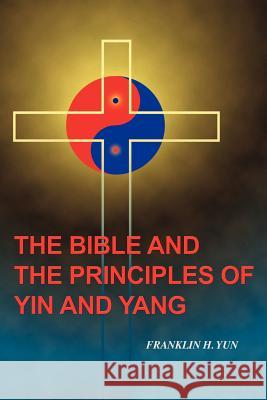The Bible and the Principles of Yin and Yang » książka
The Bible and the Principles of Yin and Yang
ISBN-13: 9781461006985 / Angielski / Miękka / 2011 / 244 str.
Instead of using the conventional medium of language alone, which theologians and philosophers have been using to study the Bible, this study looks at God and the Biblical contents in the light of the philosophy of yin and yang. Looking at them from this unconventional method provides new insights and perspectives. There has not been much effort made to establish a connection between Christianity and the principles of yin and yang, despite the fact that the philosophy of yin and yang has the unique tool of symbols to deal with the spiritual doctrines. I Ching or Book of Changes explains the principles of yin and yang. The philosophy based on the principles has greatly influenced Asian thought and religions, including Taoism, Confucianism, and Buddhism, as well as other aspects of Asian culture. In this book, author Franklin H. Yun explains Biblical doctrines based on the principles of yin and yang, adding scientific and logical explanations, and thus bringing a new perspective to Biblical interpretations. Regarding the use of the graphic symbols of yin and yang, the Book of Changes explains: "Writing cannot express the meaning of words completely. Words cannot express thoughts exhaustively. ...Sages set up images to express their thoughts completely, and they devised the hexagrams in order to express truth or falsehood in full and appended judgment to express their words completely. Through the mode of continuous changes, the device provides the basis for full benefits to the users in the rhythmic spiritual harmony like dancing in tune with drum beats." Like a picture that complements human language or the mathematical representation of physical phenomena, the yin and yang graphic representation of Biblical concepts adds another dimension allowing people to interpret them more clearly and convincingly. Faith is rooted in the metaphysical concepts beyond physical proof. The principles of yin and yang will also provide a unique perspective on the issue of religion vs. science; religion is the subject of yang or the spiritual, and science the subject of yin or physical base, both related to understanding the same creator. Therefore, the dual approaches toward an ultimate answer complement each other because God or truth is the source of both the spiritual and physical.
Zawartość książki może nie spełniać oczekiwań – reklamacje nie obejmują treści, która mogła nie być redakcyjnie ani merytorycznie opracowana.











